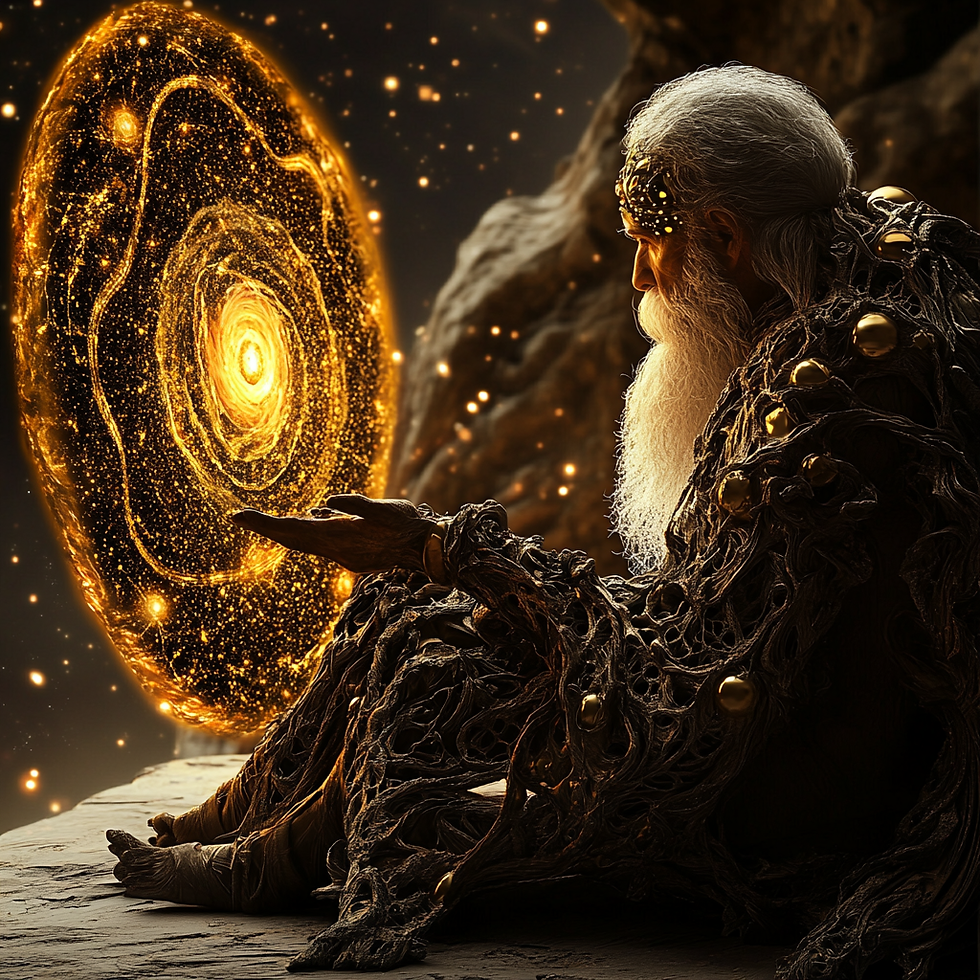What the Great Scientists Say About God
- John von Alvensleben

- Aug 19, 2025
- 3 min read

For centuries, there has been a myth that science and faith are enemies. The common story goes like this: scientists rely on facts and reason, while believers rely on blind faith. But when you actually look at history, that story falls apart.
Some of the greatest scientific minds — the ones who shaped physics, chemistry, biology, and astronomy — didn’t see the universe as random or godless. Instead, they saw order, beauty, and mystery pointing to something greater than themselves: a Creator.
Let’s explore what these brilliant thinkers actually said.
Isaac Newton (1643–1727) – Father of Modern Physics
Newton is best known for formulating the laws of motion and gravity, discoveries that forever changed science. Yet Newton didn’t believe the universe explained itself.
He wrote: “This most beautiful system of the sun, planets, and comets could only proceed from the counsel and dominion of an intelligent Being.”
For Newton, studying the cosmos wasn’t about replacing God, but about discovering how God designed the cosmos to work.
Albert Einstein (1879–1955) – Unlocking the Universe
Einstein was not traditionally religious, but he was not an atheist either. He often spoke of a mysterious intelligence behind the universe.
He once said: “The more I study science, the more I believe in God.”
Einstein admired the order of natural law. To him, the fact that the universe followed rational, mathematical principles pointed to something profound — a mind greater than ours.
Max Planck (1858–1947) – Father of Quantum Theory
Planck, the scientist who opened the door to quantum physics, openly expressed his belief in God.
He declared: “Both religion and science require a belief in God. For believers, God is in the beginning, and for physicists, He is at the end of all considerations.”
For Planck, science and faith weren’t opposites, but two sides of the same coin. Both were pathways to truth.
Louis Pasteur (1822–1895) – Founder of Microbiology
Pasteur’s discoveries in germs and vaccination saved millions of lives. Yet he never saw science as an escape from faith.
He famously said: “A little science takes you away from God, but a lot of science brings you back to Him.”
In other words, shallow knowledge might make you skeptical — but deep knowledge humbles you before the mystery of life.
Francis Collins (b. 1950) – Former Head of the Human Genome Project
Collins led the team that mapped human DNA. He is a devout Christian and author of The Language of God. He wrote: “The language of God was revealed in the DNA sequence. What we have discovered is a glimpse into the mind of God.”
Antony Flew (1923–2010) – Former Atheist Philosopher
Though not a scientist by training, Flew was one of the world’s most famous atheists until he changed his mind late in life. DNA research played a big role. He admitted: “What I think the DNA material has done is show that intelligence must have been involved in getting these extraordinary diverse elements together.”
Dean Kenyon (b. 1939) – Biologist, Co-author of Biochemical Predestination
Originally an advocate of chemical evolution, Kenyon changed his stance when studying DNA. He concluded: “We have compelling evidence that the origin of life was the result of intelligent design.”
Werner Arber (b. 1929) – Nobel Prize in Physiology or Medicine
Arber, who studied DNA and genetic engineering, said: “Although science may explain how genetic systems work, it cannot explain their origin. Their complexity suggests design.”
DNA is not just chemistry — it’s information, a coded language with 3 billion letters spelling instructions for life. Random chemical reactions cannot explain how such a vast library of meaningful information came to exist.
What This Means for Us
These scientists were not weak-minded or ignorant. They were among the most brilliant humans to ever live. Yet their search for truth led them not away from God, but toward Him.
When they looked at the universe, they didn’t see chaos — they saw order. They didn’t see emptiness — they saw design.
Even today, as science grows more advanced, the fundamental question remains: Why is the universe so perfectly balanced, so rich in laws, patterns, and beauty?
Science can explain how things work. Faith asks why they exist at all. And together, they whisper the same answer: there is a Creator.


Comments